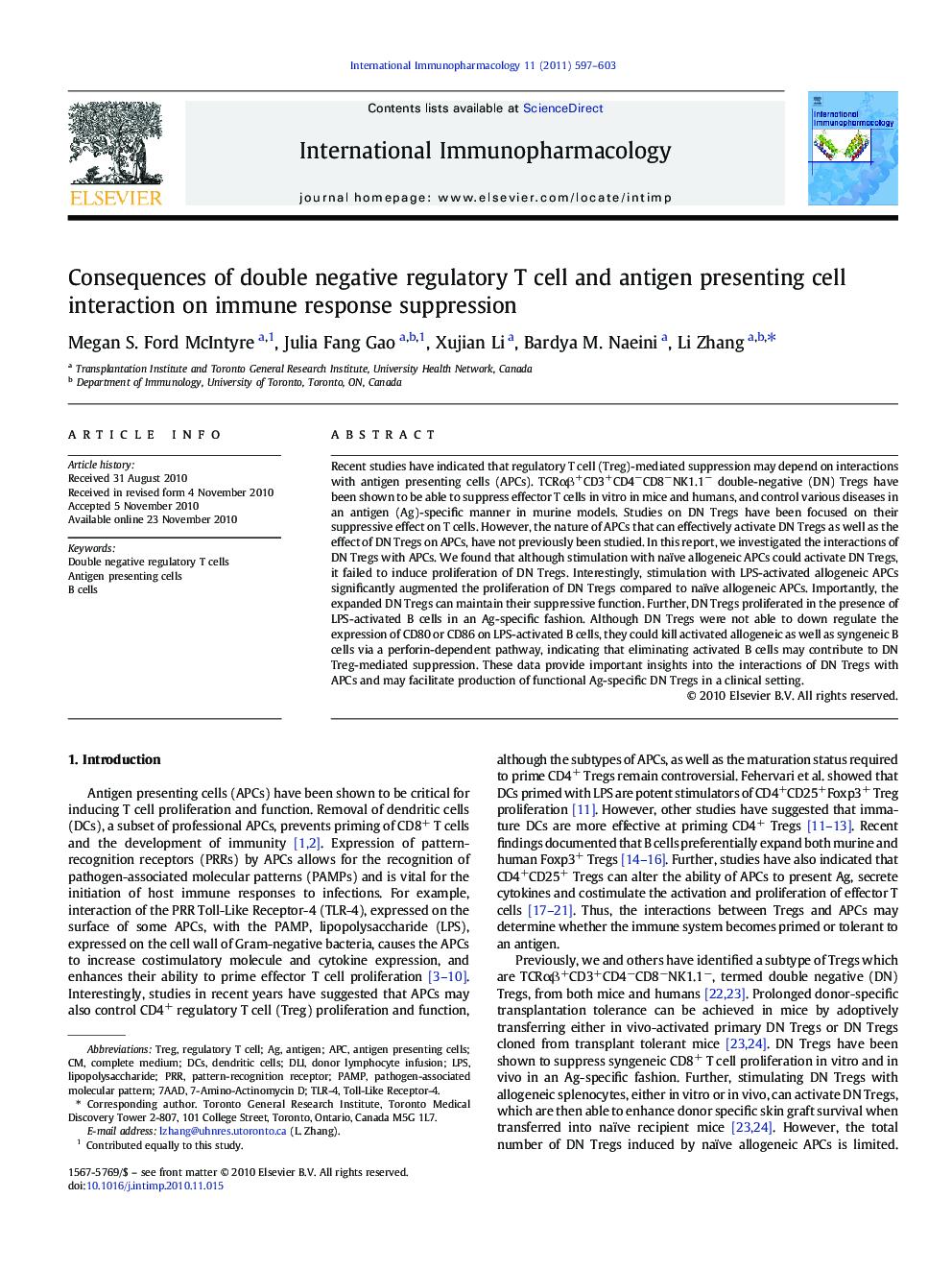| Article ID | Journal | Published Year | Pages | File Type |
|---|---|---|---|---|
| 2541200 | International Immunopharmacology | 2011 | 7 Pages |
Recent studies have indicated that regulatory T cell (Treg)-mediated suppression may depend on interactions with antigen presenting cells (APCs). TCRαβ+CD3+CD4−CD8−NK1.1− double-negative (DN) Tregs have been shown to be able to suppress effector T cells in vitro in mice and humans, and control various diseases in an antigen (Ag)-specific manner in murine models. Studies on DN Tregs have been focused on their suppressive effect on T cells. However, the nature of APCs that can effectively activate DN Tregs as well as the effect of DN Tregs on APCs, have not previously been studied. In this report, we investigated the interactions of DN Tregs with APCs. We found that although stimulation with naïve allogeneic APCs could activate DN Tregs, it failed to induce proliferation of DN Tregs. Interestingly, stimulation with LPS-activated allogeneic APCs significantly augmented the proliferation of DN Tregs compared to naïve allogeneic APCs. Importantly, the expanded DN Tregs can maintain their suppressive function. Further, DN Tregs proliferated in the presence of LPS-activated B cells in an Ag-specific fashion. Although DN Tregs were not able to down regulate the expression of CD80 or CD86 on LPS-activated B cells, they could kill activated allogeneic as well as syngeneic B cells via a perforin-dependent pathway, indicating that eliminating activated B cells may contribute to DN Treg-mediated suppression. These data provide important insights into the interactions of DN Tregs with APCs and may facilitate production of functional Ag-specific DN Tregs in a clinical setting.
